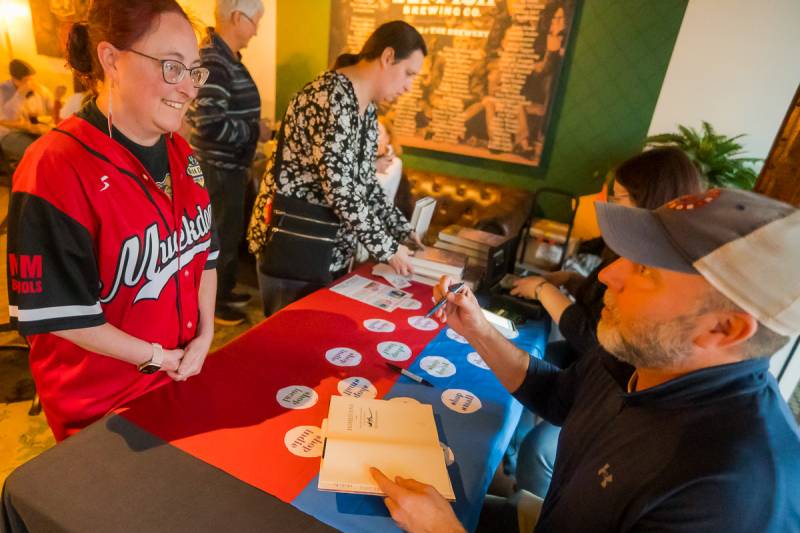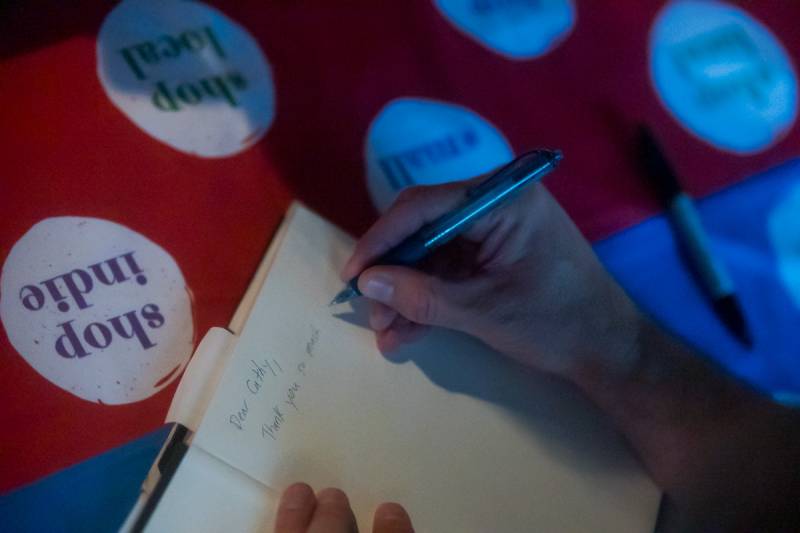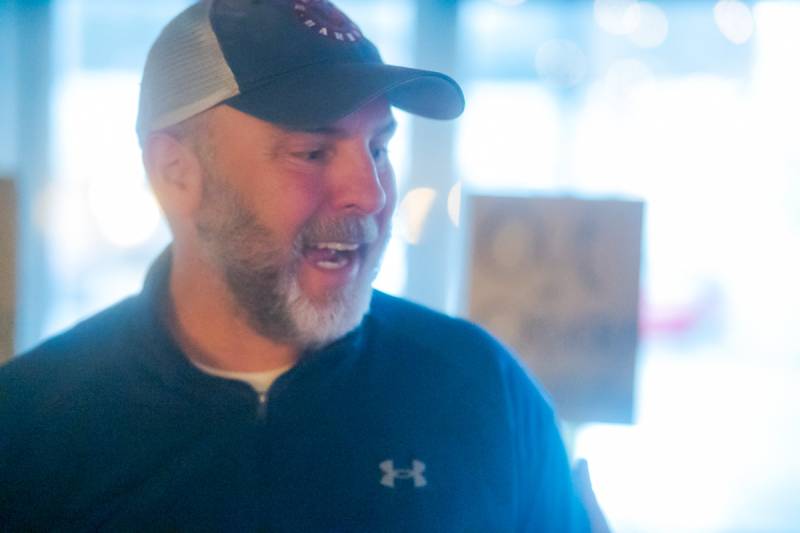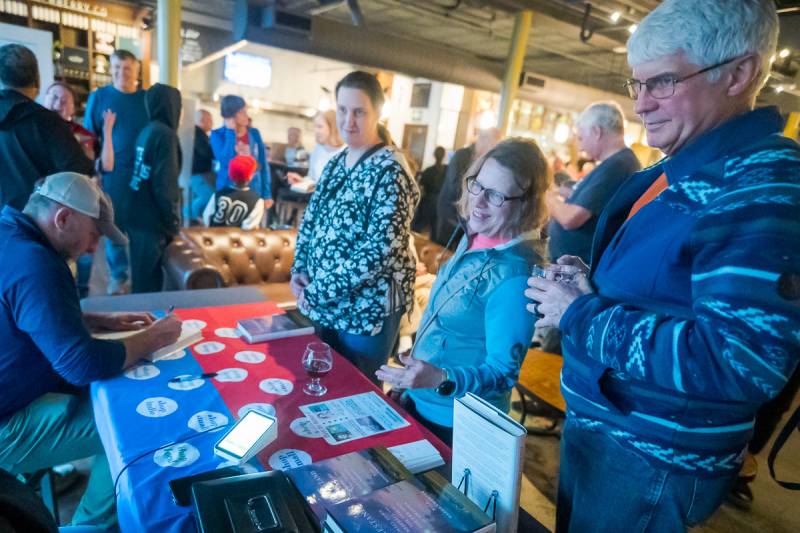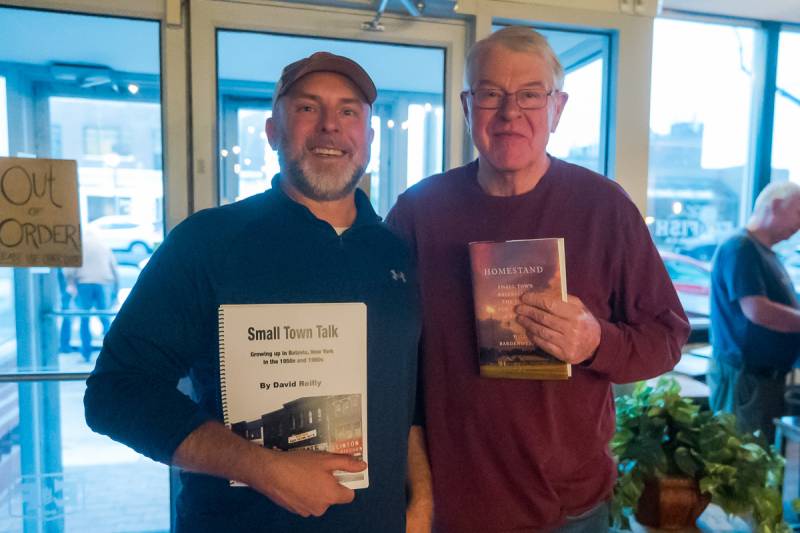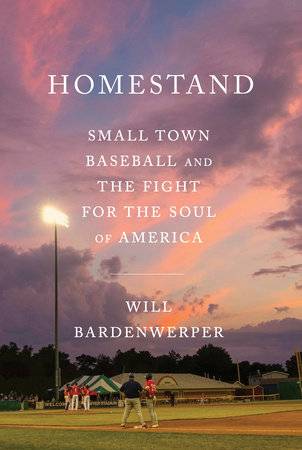Will Bardenwerper, a resident of Pennsylvannia and Iraq War veteran, spent most of the summer of 2022 in Batavia, following the season of the hometown team, the Muckdogs, its second season in the Perfect Game Collegiate Baseball League.
Until 2021, Batavia was proudly one of the founding cities of the New York-Penn League. It was the minors. But it was professional. And many fans were initially disappointed to lose their team when MLB eliminated 42 minor league teams after the 2020 season
Then, Robbie and Nellie Nichols rode into town with a plan to revive baseball in Batavia.
Bardenwerper was here on a research project, so he could tell the story of small-town baseball through the eyes of its fans, players, and owners.
The result, a new book, Homestand: Small Town Baseball and the Fight for the Soul of America
The book explores the cultural and social significance of small-town baseball, using Batavia as a lens to examine broader themes about community, corporate greed, and America’s shifting values.
Bardenwerper weaves his life as a former Army Ranger who came home to a more divided America with his observations of baseball and the folks around the ballpark where they find a communal experience.
The book also critiques MLB’s increasing corporatization and detachment from its roots. Bardenwerper highlights how private equity firms and data analytics have prioritized profits over tradition, eroding the fabric of minor league baseball.
Local names, besides the Nichols, in the book include Bill Kauffman, Bestey Higgins, Ginny Wagner, and Ross Fanara.
Jeremy Beer observes in Front Porch Republic:
The strength of Homestand lies in Bardenwerper’s portraits of such people, portraits that amount to a revealing exhibition of what 2020s small-town America really looks like. It’s scruffier than it was in its heyday, rougher around the edges, more hardscrabble, but still leavened by numerous intelligent, fascinating, and large-hearted residents. In all that it is much like the baseball now featured at Batavia’s Dwyer Stadium, which in its new, independent version is in many respects a throwback to the minor-league baseball of the 1940s.
As Kauffman tells Bardenwerper, perhaps being cut loose from MLB will turn out to be a blessing. With local ownership, local staff, and at least a few locally sourced players, the Muckdogs and the dozens of other independent minor- and summer-league teams dotting the American landscape can now shape their own futures in a way they never could have as cogs in the giant affiliated-baseball wheel. Perhaps the same can be said of their host towns. Corporate perfidy notwithstanding, communities no less than individuals have more control of their destines than they imagine—if only they will decline to cooperate in their own destruction.
The Batavian emailed Bardenwerper a few questions. Below is our Q&A.
What about Batavia and the Muckdogs surprised you?
I was perhaps the most surprised by the ages of the Muckdogs fans on most nights. There was everyone from 80-something grandparents and great-grandparents to toddlers and everyone in between. I thought this was pretty neat and something that is definitely not nearly as common at major professional sports events. I was also struck by just how kind and welcoming everyone was.
What are some of your favorite memories from that summer you spent watching the Muckdogs and hanging around Batavia?
Watching the beautiful sunsets over the left field fence while enjoying a cold Eli Fish beer and talking to the friends I made is my favorite memory.
Why do you think the collegiate league Muckdogs are drawing as well as or better than the professional Muckdogs did?
I think this is due to Robbie and Nellie’s hard work as owners determined to make the ballpark experience a fun one for people of all ages every night, and their work to really get the community involved by reaching out to local schools and other groups to make them a part of the game by having things like Little Leaguers playing catch with the players before the games, run the bases, perform the national anthem, and things like that.
You’re very critical of major league baseball in this book. Why?
For a lot of reasons, but of most relevance to this book was their decision to snuff out baseball in 42 cities that had supported it for over a century in many cases, all to save about $700,000 per team they cut, while at the same time paying individual MLB players nearly a billion dollars.
Were baseball people reluctant to go on the record criticizing MLB and the elimination of 42 minor league teams?
Yes, many of them all seemed afraid of suffering professional repercussions if they were perceived as being critical of MLB and the commissioner.
What kind of feedback are you getting from the people you wrote about in this book?
The feedback has been almost uniformly positive, which is really gratifying.
This book is as much about community as it is baseball. That makes it unique in the long and rich history of baseball books, doesn’t it?
I think so. About 80% of the book takes place off the field, in the bleachers and elsewhere in Batavia, and so while there is baseball in it, it is about more than baseball.
